GIN-TONIC’s First In-Person Meeting
- Oct 27, 2025
- 3 min read
Updated: Nov 18, 2025
Date: August 29th, 2025
Location: Universität Innsbruck, Austria
On August 29th, 2025, the first in-person meeting of the GIN-TONIC COST Action (CA23127) took place at the Universität Innsbruck.The event gathered 58 participants representing 23 countries, setting a milestone for this journey of understanding insect nutrition requirements and promoting sustainable food systems!
The meeting brought together entomologists, nutritionists, biochemists, and sustainability experts for a day of collaboration, knowledge exchange, and strategic planning across the five GIN-TONIC Working Groups (WGs).

Highlights from the Working Groups
During the meeting, the members had the opportunity to exchange ideas on insect nutrition, explore cross-disciplinary synergies, and define the next steps for collaborative research under the COST Action's framework.
Here’s a snapshot of the discussions and outcomes from each Working Group:
Working Group 1 – Comparative Digestive physiology, Microbiota, and Feeding behaviour
Leaders: Itai Opatovsky & Daniele Bruno
Main takeaways:
A strong demand for Omics and genetic expertise (metabolomics, transcriptomics, gene editing).
The group plans to invite experts to deliver webinars on feeding behavior and other classical entomology topics.
Proposed cross-disciplinary collaborations, especially adapting technologies from other insect models (bees, silkworms, fruit flies) to edible insect species.
Working Group 2 – Proteins and Amino Acids
Leaders: Manfred Mielenz & Isabel Mafra
Group discussions highlighted:
The need to focus on amino acid requirements rather than the quantity of protein.
Identifying methods for dose–response trials and digestibility assessments.
The group plans to invite experts to deliver webinars on amino acid requirements and other classical entomology topics.
Working Group 3 – Lipid, Carbohydrates (energy ratios) and Fat-soluble Compounds such as Sterols
Leaders: Olga Ameixa & Fulvia Bovera
Highlights:
Emphasis on characterizing carbohydrate and lipid intake, and the conversion of energy through metabolism.
Suggested the use of advanced molecular tools such as RNAi to study gene pathways (lipogenesis, nutrient mobilization).
Consensus on:
Differentiating essential lipids and defining key energy sources.
Standardizing artificial diets to enable controlled nutrient studies.
Focusing research on species-, sex-, and stage-specific requirements.
Exploring desaturase and elongase genes as central to lipid metabolism.
Working Group 4 – Vitamins and Mineral Requirements
Leaders: Christos Rumbos & Wael Yakti
Highlights:
Continued development of protocols for standardizing mineral and vitamin measurements.
Brainstormed knowledge gaps including:
Interactions between proteins, minerals, and oxidative stress.
Bioavailability of minerals under different forms (organic vs. inorganic).
Gut loading, substrate pre-treatment, and hyperaccumulation phenomena.
Working Group 5 – Materials and Methods in Insect Nutrition Research
Leaders: Gürbüz Daş & David Deruytter
Highlights:
WG5 is organized into four dedicated Focus Teams, each addressing an overarching methodological topic
Strengthening interactions with other Working Groups
Identifying core methodologies to be addressed in the upcoming 2026 Training School
Fostering Innovation Through Teamwork!
The Innsbruck meeting underscored a shared commitment to knowledge exchange and collaboration. From molecular biology to applied nutrition and standardization approached, each Working Group contributes to building a holistic framework for understanding insect nutritional needs and enhancing sustainability in insect farming.
This event marks not just a meeting, but the beginning of stronger, face-to-face collaboration that will drive GIN-TONIC forward in its mission to transform insect nutrition science.
A warm thank you for our Action Chair & Vice Chair,👉 Dennis Oonincx and Sara Bellezza Oddon, for their leadership and vision, as well as to our coordinators: Itai Opatovsky, Daniele Bruno, Manfred Mielenz, Isabel Mafra, Olga Ameixa, Fulvia Bovera, Christos Rumbos, Wael Yakti, Gürbüz Daş, David Deruytter, Saša Krstović, Lotte Frooninckx, and Christina Adamaki-Sotiraki, Natalia Naranjo Guevara, and Raffaela Schreuers —whose continuous work makes this network thrive.
Special appreciation is extended to event coordinators Thomas Klammsteiner and Lotte Frooninckx for orchestrating such a fruitful and well-organized meeting.
We also thank Laura Gasco who shared her expertise on feed science and informed the participants on the importance of the connection to Insect Diets.
🎯 Next Steps for 2026
◎ A Training School is planned for 2026, open to all Working Group members who wish to participate as lecturers or trainees.
◎ STSMs (Short-Term Scientific Missions) will be promoted to encourage exchanges and foster new partnerships across Europe.
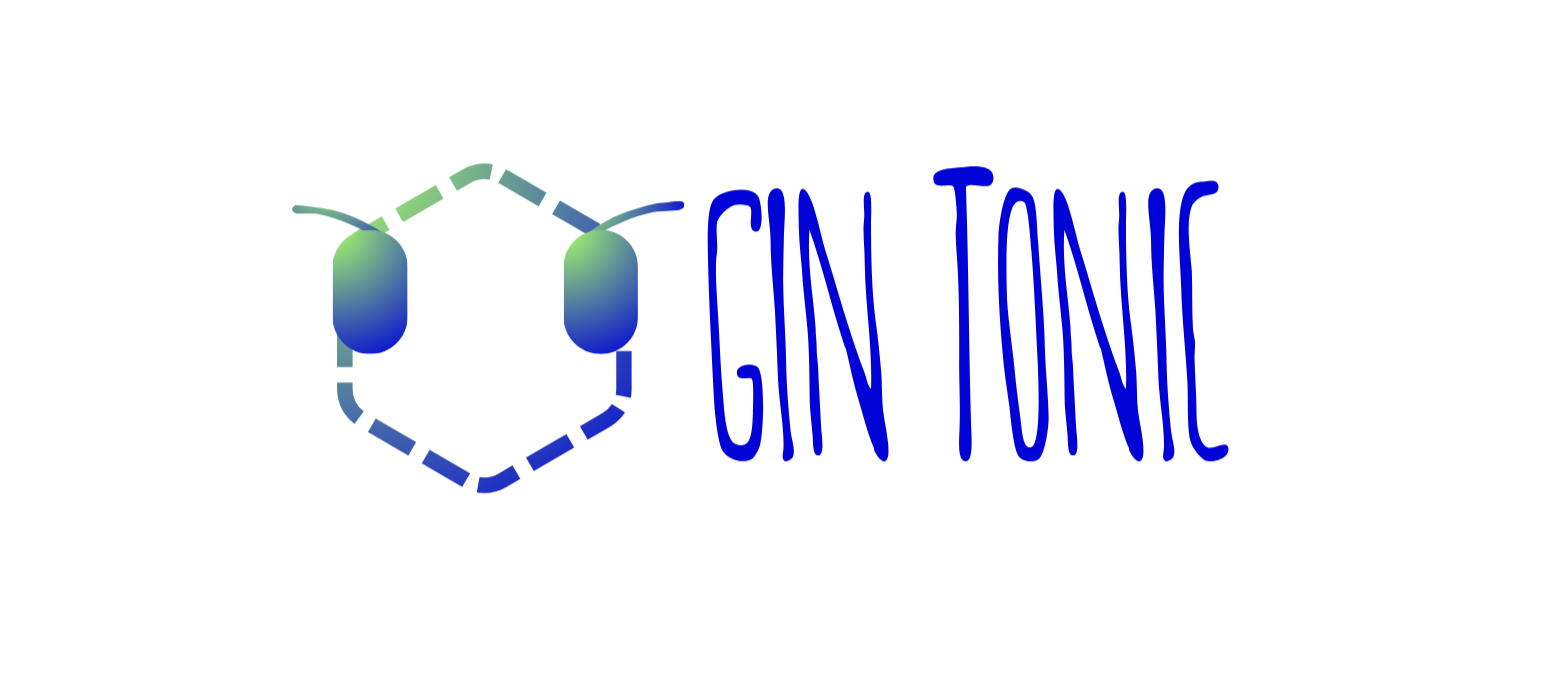









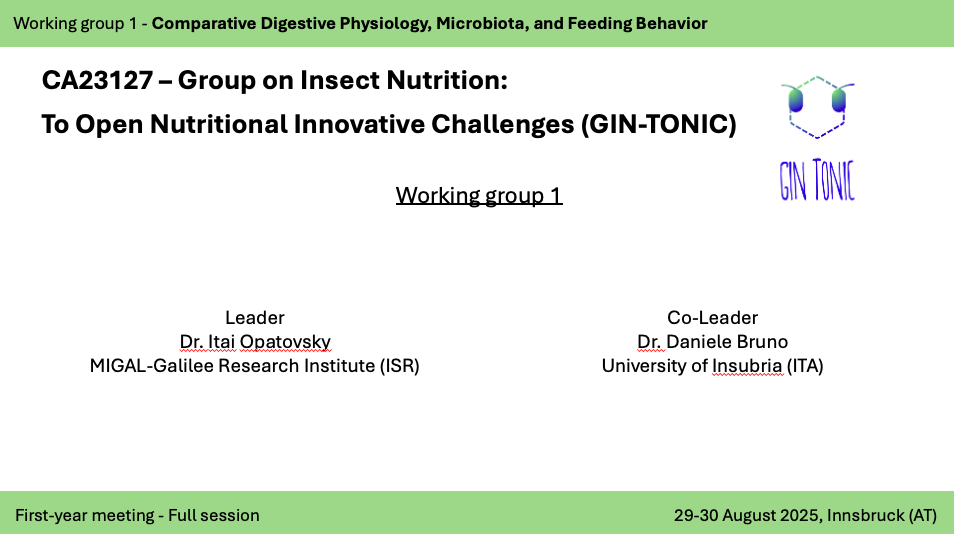

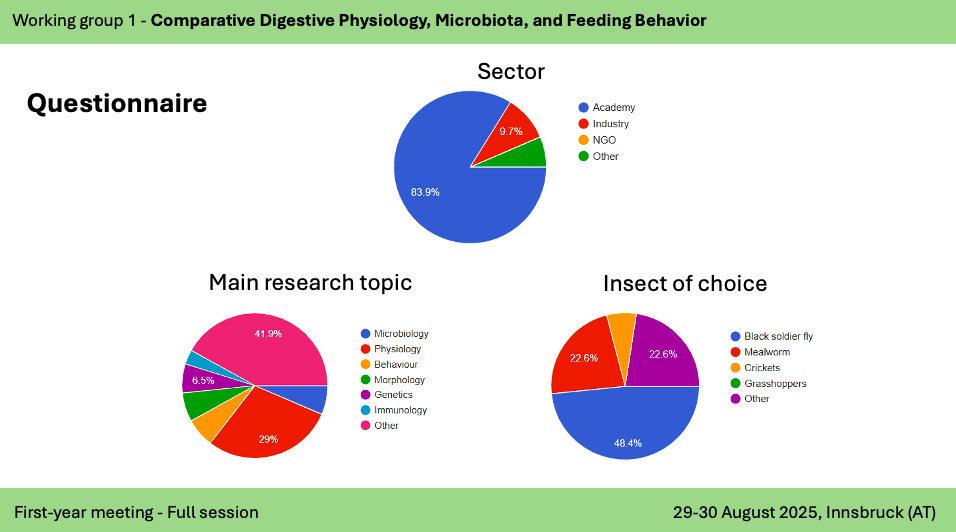



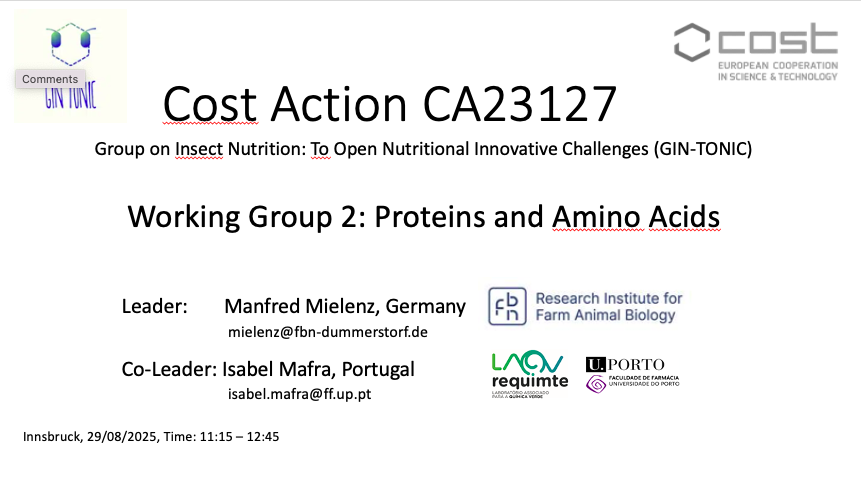

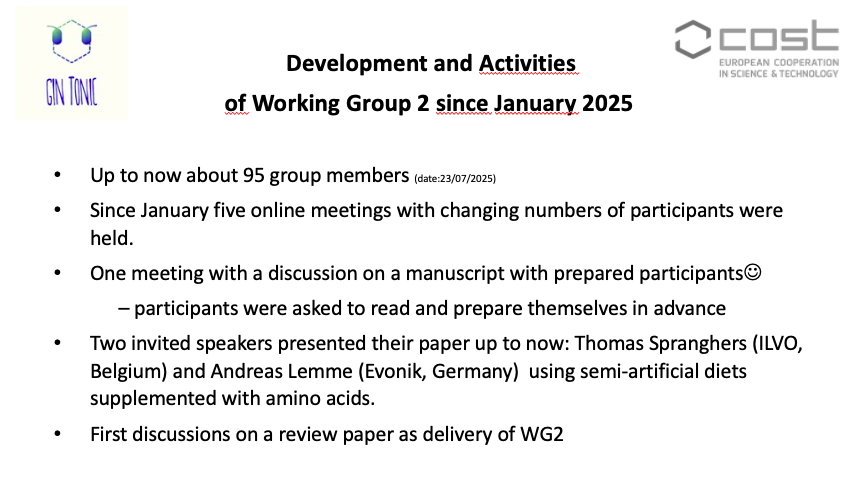

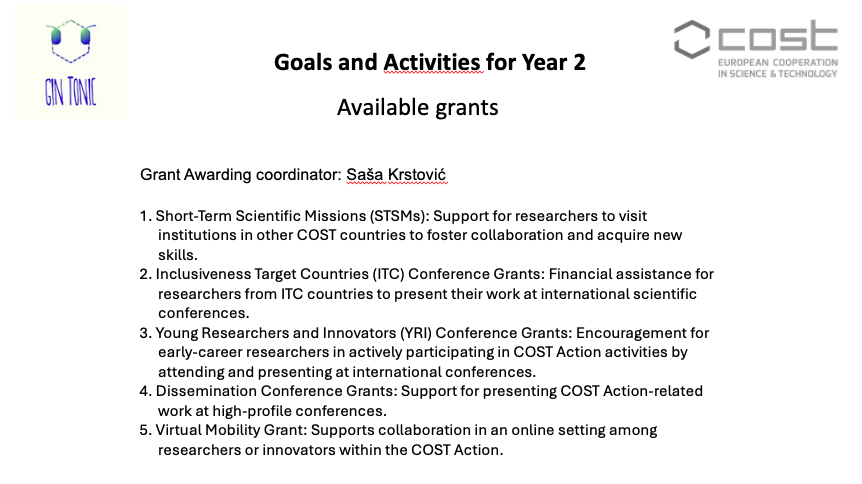

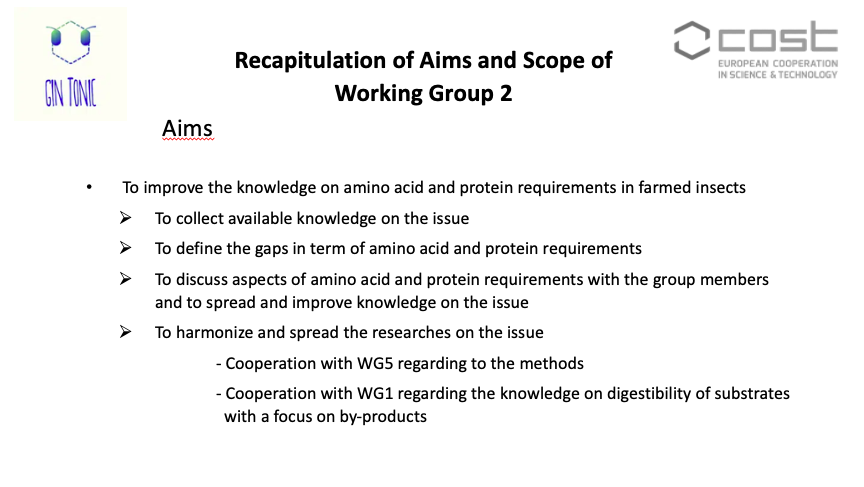













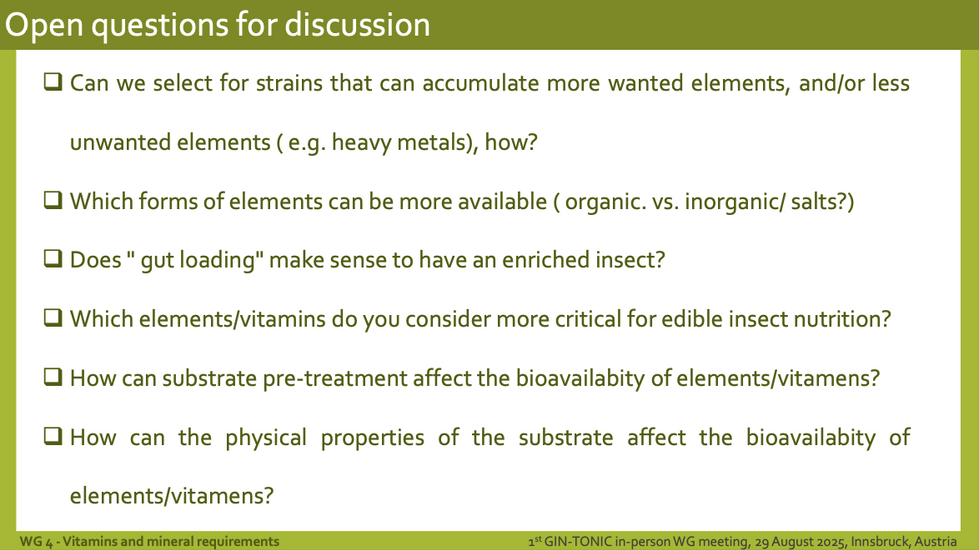

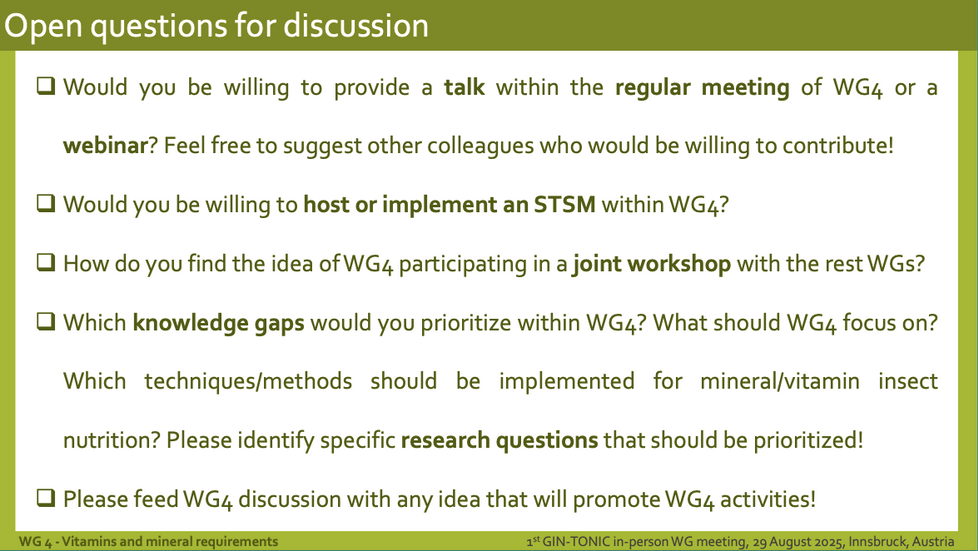

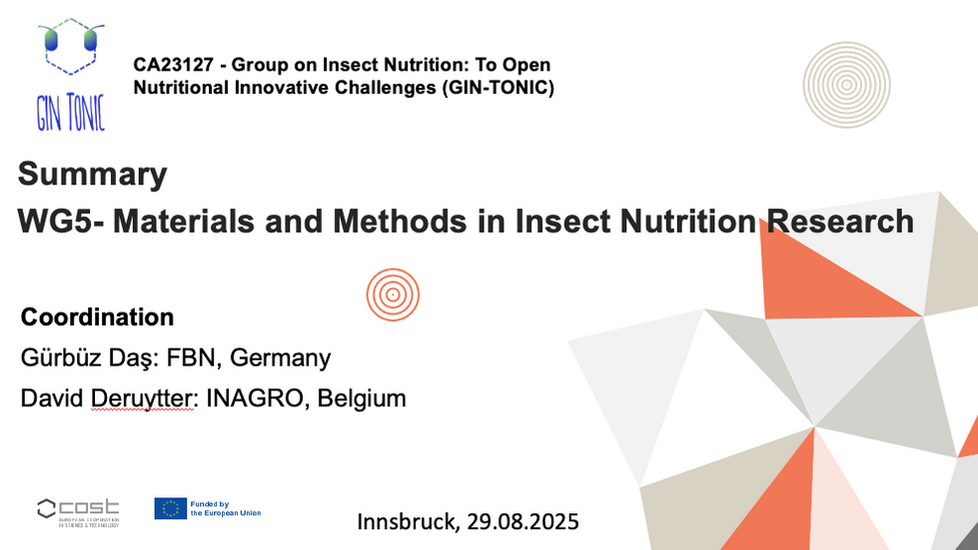



















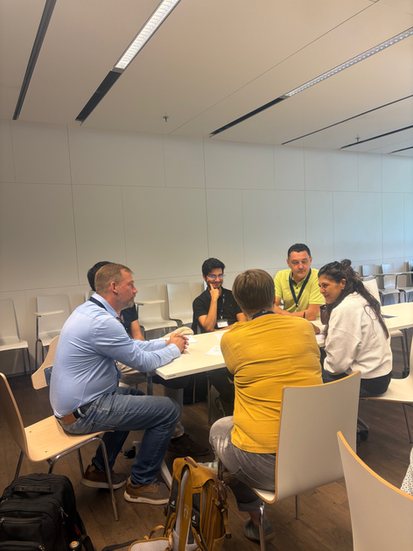




























Comments